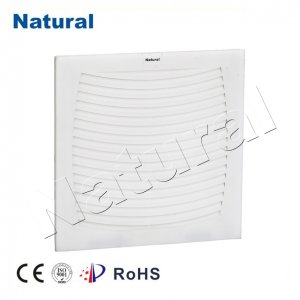In today’s rapidly evolving world, where health and well-being take precedence, the importance of indoor air quality cannot be overstated. The air we breathe indoors can have a significant impact on our health, comfort, and productivity. To ensure a healthier indoor environment, fan air systems equipped with High Efficiency Particulate Air (HEPA) filters have emerged as a crucial solution.

Introduction Indoor air quality has become a major concern, particularly in urban environments where pollutants from various sources can accumulate within enclosed spaces. Poor indoor air quality can lead to various health issues such as allergies, respiratory problems, and even exacerbation of existing conditions. In this context, fan air systems equipped with HEPA filters have gained widespread attention as an effective means to enhance indoor air quality. Understanding HEPA Filters HEPA filters are designed to capture particles as small as 0.3 micrometers with an efficiency of 99.97%. This level of filtration is crucial because many airborne contaminants, including dust, pollen, pet dander, mold spores, and even some bacteria and viruses, fall within this size range. By employing HEPA filters in fan air systems, the filtration efficiency is significantly enhanced, resulting in cleaner air being circulated within indoor spaces. Benefits of Fan Air Systems with HEPA Filters Removal of Particulate Matter:HEPA filters excel at trapping particles that can pose health risks. These filters act as a barrier, preventing the circulation of harmful airborne particles, thereby reducing the likelihood of allergies and respiratory ailments. Improved Respiratory Health:With the removal of airborne pollutants, individuals, especially those with pre-existing respiratory conditions like asthma, can experience relief from symptoms and breathing difficulties. Prevention of Airborne Transmission:In situations where infectious diseases are a concern, fan air systems equipped with HEPA filters can aid in reducing the spread of airborne pathogens, contributing to a healthier and safer environment. Enhanced Comfort:Cleaner air contributes to an overall sense of well-being and comfort. People working or living in spaces with improved indoor air quality are likely to feel more at ease and focused. Long-Term Benefits:While HEPA filters require periodic replacement, their effectiveness in improving indoor air quality can lead to long-term health benefits, potentially reducing healthcare costs associated with respiratory illnesses. Implementing Fan Air Systems with HEPA Filters Integrating HEPA filters into fan air systems is a relatively straightforward process. The filters can be installed within the ventilation system, either as standalone units or in conjunction with existing filtration systems. Regular maintenance, including filter replacement and system cleaning, is essential to ensure consistent performance. Considerations and Limitations While fan air systems with HEPA filters offer substantial benefits, it’s important to note that these systems might not be suitable for all scenarios. The size of the space, the specific airborne contaminants, and the filtration requirements should all be considered when selecting and implementing such systems. Additionally, HEPA filters may slightly impact the airflow of the ventilation system, which might require adjustments to the system design. Conclusion In the pursuit of healthier indoor environments, the integration of HEPA filters into fan air systems presents a promising solution. These filters play a crucial role in capturing a wide range of airborne pollutants, leading to improved indoor air quality and subsequently benefiting occupants’ health and well-being. While challenges and considerations exist, the potential long-term advantages of cleaner air make fan air systems equipped with HEPA filters an investment worth considering for homes, offices, and public spaces alike.